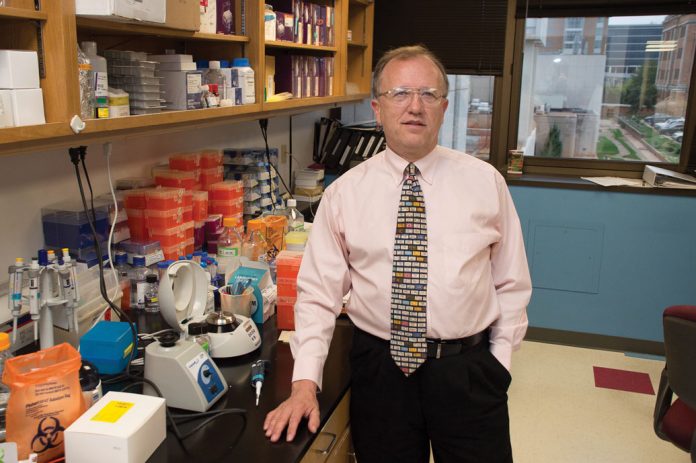
The world is running out of antibiotics.
In a new report from the World Health Organization, research showed that too few new antibiotics are being developed to counter the growing threat of infections that are resistant to currently available antibiotics.
“Antibiotic resistance is one of the biggest and fastest-growing health crises facing our planet,” said Oklahoma Medical Research Foundation immunologist Hal Scofield, M.D. The CDC estimates that 23,000 Americans die each year from infections that don’t respond to standard treatment with antibiotics. And this number is only going up.
Antibiotic resistance occurs when a bacteria, fungi, or parasite is no longer curable by medicines previously able to treat them. For example, if you give a patient antibiotics and it kills 99.9 percent of the bugs that are causing the disease, the 0.01 percent that survive can become superbugs that are resistant to the medication.
“This happens routinely, and we know it’s going to continue until protocols are established in medicine to minimize it,” said OMRF President Stephen Prescott, M.D., a physician and medical researcher. “Unfortunately there are a lot of forces working in the other direction.”
The primary cause for the surge in superbugs is excessive use of antibiotics. According to the CDC, healthcare providers write 47 million unneeded antibiotic prescriptions each year in the U.S. alone. “It’s routine for antibiotics to be prescribed for conditions that they can’t treat, things like sore throats, colds and other viral infections,” said Prescott.
Scofield emphasized that patients also bear some responsibility. “People often demand antibiotics from their healthcare providers in situations where they won’t help,” he said. “And for a variety of reasons—including the desire to please patients and to receive high customer-satisfaction ratings—the providers often reluctantly accept.”
Finding ways to administer antibiotics only when needed is important, said Prescott. But so is proper usage by patients once the drugs are prescribed. “This means never skipping doses or stopping treatment early, even if you feel better,” Prescott said.
He added that the use of antibiotics in animals like chickens, cattle and pigs may also be a culprit. “The drugs speed the animals’ growth and how much meat they have on them, but they are also very likely contributing in a significant way to the rapid rise of superbugs,” he said.
The new WHO report states that 51 antibiotics and 11 natural medical products are in development, but the fear is that it won’t be nearly enough, because many won’t make it all the way through trials to enter the market. The WHO also warns that many are only short-term solutions, as well, because most are just modifications of existing treatments.
“People in Oklahoma need to realize this isn’t a rare thing that only happens in third-world countries. It’s occurring all over,” Prescott said. “It’s a real problem and it’s not one that will be easily solved. There are big, wholesale structural changes that need to happen.”

Village on the Park is HIRING FT/PT & DBL WEEKEND ACMA/CMA/ CNA to join our AMAZING Family.
Apply in person at
1515 Kingsridge Dr., OKC 73170. Call Tammie,
Director of Resident Care at 405-692-8700, or
Email resume to [email protected]












